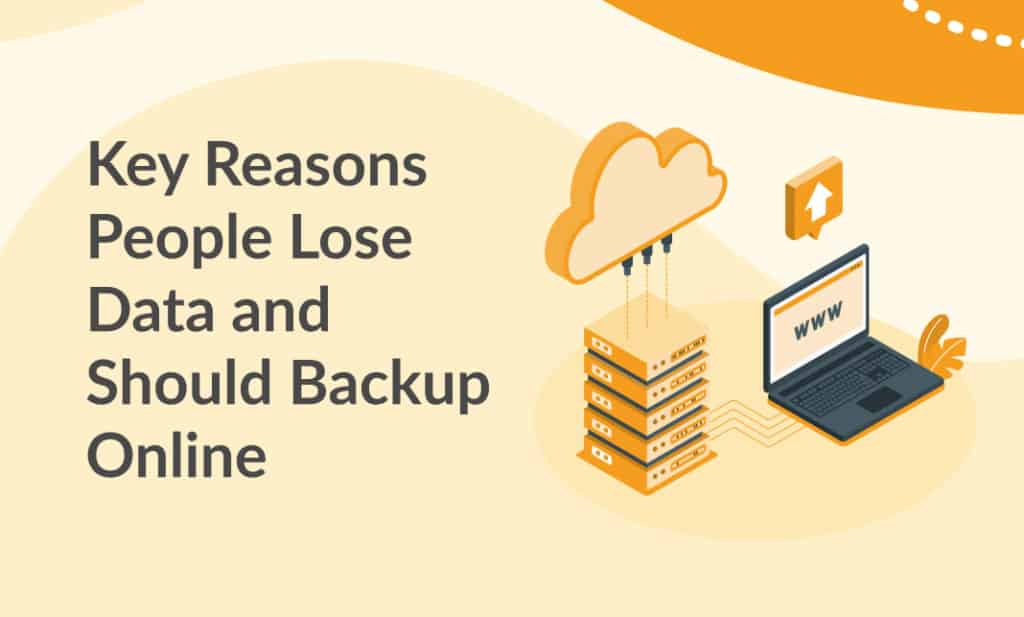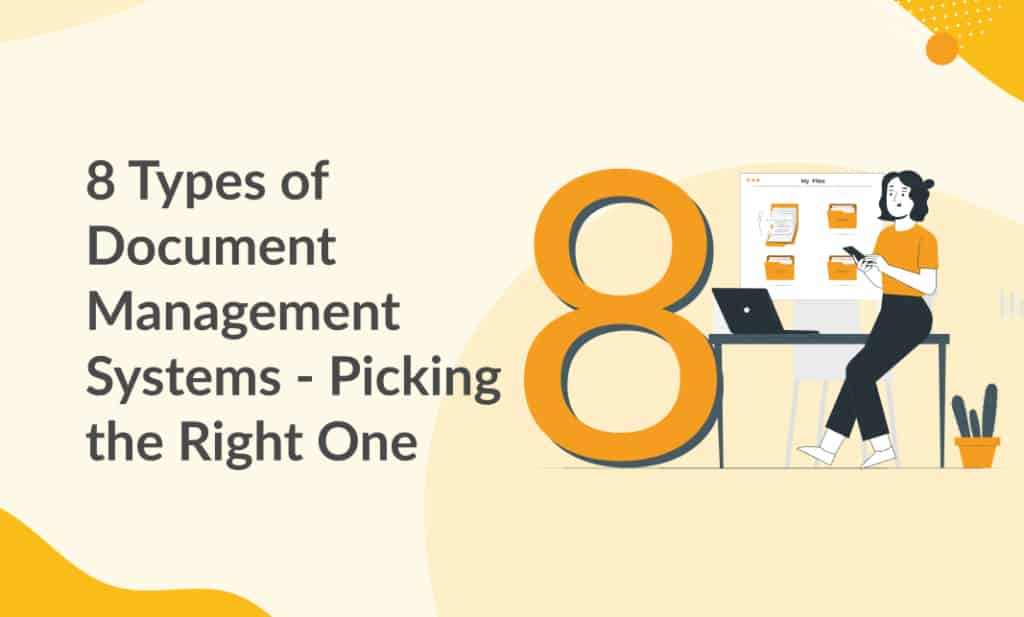Backup is important. Yet most people are under the mistaken impression that data loss can’t happen or won’t happen to them. But, did you know that your daily life – things that you do without thinking about it – can cause these instances of data loss? That’s right! Your daily life is often the reason you lose information.
After all, how you save, store and handle the information determines if you’ve really kept it or lost it.
Biggest Reasons You Might Lose Important Files and Texts

You Accidently Deleted Your Files
The number one reason you lose information is you’ve accidentally deleted the files without creating a backup of them first. Many people update and delete files on an everyday basis. And, many times, people may delete the wrong files or overwrite a file they didn’t mean to do. It’s such a part of daily life that they don’t even see the issue as a risk any longer.
People just lose the information because they don’t implement proper workflow procedures or backup strategies. If you want to save yourself from having a headache later on, be sure you do regular backups of your information and implement effective procedures.

Malware and Viruses
There are new viruses and malware being created practically every day. While being connected to a global network does have some benefits, it does come with an array of risks. While the damages can vary, most viruses and malware will affect a computer’s operational software, damage stored information (files you’ve kept) and misuse your Internet connection.
There are all kinds of viruses, and loss of data is only one side effect of what a virus can do to your computer or other electronic devices.
When it comes to the most dangerous risk associated with viruses and malware, it’s when they’re designed to steal business information. Think back a couple of years to Target, when it was found that malware had been found on its kiosks where customers swiped their credit cards to pay for goods.
Wherever there is monetary value, hackers have a genuine interest in attaining this information. Hackers will develop a defective impression of failures in an OS to hide who they are and their true intentions.
When your computer is plagued with malware and viruses, the only true way to fix the problem is to install programs and OS with their installation disks. Be sure you backup your information on a regular basis so that you can have them if you should suffer a damaging virus.

Mechanical Hard Drive Damage
The most fragile part of a computer system is the hard drive, and they break down more than any other part of a computer. After all, there is an array of moving parts on the hard drive, which is why they break down easily. While you could get this information back from a “broken” hard drive, the service may cost you over $1,000. And, there are no guarantees that a professional service provider will get all the important information you want.
Hard drives will die… eventually. But, on top of that, there are a plethora of manufacturing defects. Everybody wants to store more on their computer – think 1TB hard drives – but tiny imperfection could damage hard drives. Plus, if you drop your computer (laptop), you could damage the hard drive. A 2015 survey shows about 5,8% of harddrives fail yearly.
Don’t take the risk of losing the information stored on your hard drive. Do regular backups to ensure you save your information should there be any hardware problems. You can save yourself a lot of time by backing up this information, allowing you to use it once more after the hardware failure has been addressed.

Power Failures
Power failures can have two negative impacts:
Imagine you’re writing an article, have yet to save it and, boom, the power goes out. Likely, you’ve just lost your information. Of course, that’s simple form of data loss, but if you’re working on a graphic illustration or web design, losing power to your computer can be a real headache.
A bigger problem is when a power failure leads to damage of your computer hardware or OS. If you shut your computer down improperly, it can lead to problems in rebooting it later. It can also cause a chain reaction and, the information you had access to earlier may not be accessible later.
A sudden voltage change could affect various computer parts. A majority of problems can be addressed by changing out the power supply unit, but there’s a possibility that you could damage other computer components that are sensitive to strong magnetic fields and voltage.
In order to recover your information after a power failure, your work should be automatically backed up. It’s not hard to change computer hardware parts that have been damaged by a power failure, but you could lose the information if your computer is struck by lightning or experienced any kind of power interruption.
With regular backups, you’ll feel more at ease about your information because it’ll be in a more secure location. Thus, if you experience a power failure, you have the information within your grasp.

Computer Theft
It’s a crying shame that you can’t bring something or leave something somewhere without someone thinking they have free reign to it. Or, you may lose it yourself – forgetting where you placed it. When this happens, you lose both your computer and information at one time. While getting a new computer can be expensive, the information stored on that computer is far more important – family pictures, personal memories, heirlooms, etc. These are things that money can’t replace.
You can make the loss of your computer less painful by properly backing up the information and locking the information in storage. This will allow you to attain the information once more even if you no longer have the computer.

Liquid Damage
More people use laptops over desktops, and spilled drinks onto a laptop could affect the device’s hardware. Most laptops don’t come with extra covers that protect the internal parts from water damage.
When liquid spills onto the tablet, it can short circuit the electronic components, which makes it difficult to recover any information later on. Hard drives do have a protective casing, but that doesn’t mean they’re completely immune from liquid failures. Also, what spills onto the computer – beyond water – can make a huge difference on your hard drive.
You could accidentally drop your computer in water or be hit with a natural flooding disaster. If the computer becomes immersed in water, it may be difficult to repair anything. You could go to a computer repair professional afterwards to see if some parts of your computer can be saved. If you don’t turn the computer on immediately after it’s dropped or soaked by water, you could prevent major damage.
Water damage will result in data loss on your hard drive, which is why you need to do regular backups of your computer. Don’t lose the information due to your own carelessness or a natural disaster.

Fire and Explosions
While an explosion is unlikely to happen, fires happen regularly and without warning. And, a fire can completely destroy a computer and its information. Fire is dangerous to backups in the house too. You can do weekly backups of your hard drive onto an external hard drive, but if it’s in the same house, it won’t do you much good if there is a fire. Both the computer and backup hardware is going to be destroyed and the information lost.
So what to do?
The best thing you can do is conduct your regular backups and leave the backup in another location, preferrably cloud. For instance, you could back up your information on an external hard drive, removable drive (thumb drive) or back it up into a cloud. And, you can set up reminders about when you should back up your hard drive information.
Using a dedicated cloud-based file management system like Folderit is a wise move as it protects all your data in a safe and encrypted cloud (provided by Amazon). It allso adds the capability to add metadata like tags and notes to your files, so you can easily find them later, unlike on a computer where you need to know the exact file name to be able to look for it.
It’s also not a bad idea to save a different version of the same file such as naming one file 1 or 2, Folderit file versioning helps you there.
Save yourself the headache that comes with data loss by doing everything you can to protect yourself and your computer from lightning strikes, malware and viruses, liquid damage and a host of other things.



